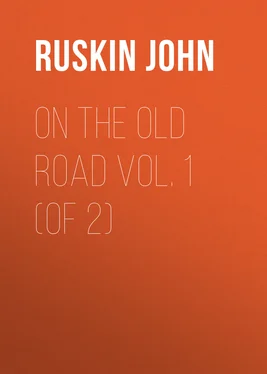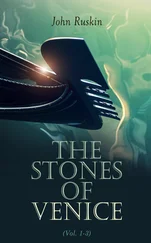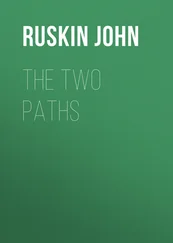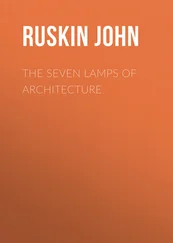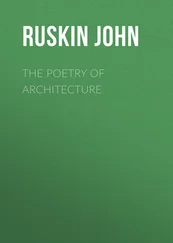John Ruskin - On the Old Road Vol. 1 (of 2)
Здесь есть возможность читать онлайн «John Ruskin - On the Old Road Vol. 1 (of 2)» — ознакомительный отрывок электронной книги совершенно бесплатно, а после прочтения отрывка купить полную версию. В некоторых случаях можно слушать аудио, скачать через торрент в формате fb2 и присутствует краткое содержание. Жанр: foreign_antique, foreign_home, literature_19, visual_arts, на английском языке. Описание произведения, (предисловие) а так же отзывы посетителей доступны на портале библиотеки ЛибКат.
- Название:On the Old Road Vol. 1 (of 2)
- Автор:
- Жанр:
- Год:неизвестен
- ISBN:нет данных
- Рейтинг книги:3 / 5. Голосов: 1
-
Избранное:Добавить в избранное
- Отзывы:
-
Ваша оценка:
- 60
- 1
- 2
- 3
- 4
- 5
On the Old Road Vol. 1 (of 2): краткое содержание, описание и аннотация
Предлагаем к чтению аннотацию, описание, краткое содержание или предисловие (зависит от того, что написал сам автор книги «On the Old Road Vol. 1 (of 2)»). Если вы не нашли необходимую информацию о книге — напишите в комментариях, мы постараемся отыскать её.
On the Old Road Vol. 1 (of 2) — читать онлайн ознакомительный отрывок
Ниже представлен текст книги, разбитый по страницам. Система сохранения места последней прочитанной страницы, позволяет с удобством читать онлайн бесплатно книгу «On the Old Road Vol. 1 (of 2)», без необходимости каждый раз заново искать на чём Вы остановились. Поставьте закладку, и сможете в любой момент перейти на страницу, на которой закончили чтение.
Интервал:
Закладка:
92. But it is difficult by words to convey to the reader unacquainted with Angelico's works, any idea of the thoughtful variety of his rendering of movement—Earnest haste of girded faith in the Flight into Egypt, the haste of obedience, not of fear; and unweariedness, but through spiritual support, and not in human strength—Swift obedience of passive earth to the call of its Creator, in the Resurrection of Lazarus—March of meditative gladness in the following of the Apostles down the Mount of Olives—Rush of adoration breaking through the chains and shadows of death, in the Spirits in Prison. Pacing of mighty angels above the Firmament, poised on their upright wings, half opened, broad, bright, quiet, like eastern clouds before the sun is up;—or going forth, with timbrels and with dances, of souls more than conquerors, beside the shore of the last great Red Sea, the sea of glass mingled with fire, hand knit with hand, and voice with voice, the joyful winds of heaven following the measure of their motion, and the flowers of the new earth looking on, like stars pausing in their courses.
93. And yet all this is but the lowest part and narrowest reach of Angelico's conceptions. Joy and gentleness, patience and power, he could indicate by gesture—but Devotion could be told by the countenance only. There seems to have been always a stern limit by which the thoughts of other men were stayed; the religion that was painted even by Perugino, Francia, and Bellini, was finite in its spirit—the religion of earthly beings, checked, not indeed by the corruption, but by the veil and the sorrow of clay. But with Fra Angelico the glory of the countenance reaches to actual transfiguration; eyes that see no more darkly, incapable of all tears, foreheads flaming, like Belshazzar's marble wall, with the writing of the Father's name upon them, lips tremulous with love, and crimson with the light of the coals of the altar—and all this loveliness, thus enthusiastic and ineffable, yet sealed with the stability which the coming and going of ages as countless as sea-sand cannot dim nor weary, and bathed by an ever flowing river of holy thought, with God for its source, God for its shore, and God for its ocean.
94. We speak in no inconsiderate enthusiasm. We feel assured that to any person of just feeling who devotes sufficient time to the examination of these works, all terms of description must seem derogatory. Where such ends as these have been reached, it ill becomes us to speak of minor deficiencies as either to be blamed or regretted: it cannot be determined how far even what we deprecate may be accessory to our delight, nor by what intricate involution what we deplore may be connected with what we love. Every good that nature herself bestows, or accomplishes, is given with a counterpoise, or gained at a sacrifice; nor is it to be expected of Man that he should win the hardest battles and tread the narrowest paths, without the betrayal of a weakness, or the acknowledgment of an error.
95. With this final warning against our author's hesitating approbation of what is greatest and best, we must close our specific examination of the mode in which his design has been worked out. We have done enough to set the reader upon his guard against whatever appears slight or inconsiderate in his theory or statements, and with the more severity, because this was alone wanting to render the book one of the most valuable gifts which Art has ever received. Of the translations from the lives of the saints we have hardly spoken; they are gracefully rendered, and all of them highly interesting—but we could wish to see these, and the enumerations of fresco subjects 11 11 We have been much surprised by the author's frequent reference to Lasinio's engravings of various frescoes, unaccompanied by any warning of their inaccuracy. No work of Lasinio's can be trusted for anything except the number and relative position of the figures. All masters are by him translated into one monotony of commonplace:—he dilutes eloquence, educates naïveté, prompts ignorance, stultifies intelligence, and paralyzes power; takes the chill off horror, the edge off wit, and the bloom off beauty. In all artistical points he is utterly valueless, neither drawing nor expression being ever preserved by him. Giotto, Benozzo, or Ghirlandajo are all alike to him; and we hardly know whether he injures most when he robs or when he redresses.
with which the other volumes are in great part occupied, published separately for the convenience of travelers in Italy. They are something out of place in a work like that before us. For the rest, we might have more interested the reader, and gratified ourselves, by setting before him some of the many passages of tender feeling and earnest eloquence with which the volumes are replete—but we felt it necessary rather to anticipate the hesitation with which they were liable to be received, and set limits to the halo of fancy by which their light is obscured—though enlarged. One or two paragraphs, however, of the closing chapter must be given before we part:—
96. "What a scene of beauty, what a flower-garden of art—how bright and how varied—must Italy have presented at the commencement of the sixteenth century, at the death of Raphael! The sacrileges we lament took place for the most part after that period; hundreds of frescoes, not merely of Giotto and those other elders of Christian Art, but of Gentile da Fabriano, Pietro della Francesca, Perugino and their compeers, were still existing, charming the eye, elevating the mind, and warming the heart. Now alas! few comparatively and fading are the relics of those great and good men. While Dante's voice rings as clear as ever, communing with us as friend with friend, theirs is dying gradually away, fainter and fainter, like the farewell of a spirit. Flaking off the walls, uncared for and neglected save in a few rare instances, scarce one of their frescoes will survive the century, and the labors of the next may not improbably be directed to the recovery and restoration of such as may still slumber beneath the whitewash and the daubs with which the Bronzinos and Zuccheros 'et id genus omne' have unconsciously sealed them up for posterity—their best title to our gratitude.—But why not begin at once? at all events in the instances numberless, where merely whitewash interposes between us and them.
"It is easy to reply—what need of this? They—the artists—have Moses and the prophets, the frescoes of Raphael and Michael Angelo—let them study them. Doubtless,—but we still reply, and with no impiety—they will not repent, they will not forsake their idols and their evil ways—they will not abandon Sense for Spirit, oils for fresco—unless these great ones of the past, these Sleepers of Ephesus, arise from the dead.... It is not by studying art in its perfection—by worshiping Raphael and Michael Angelo exclusively of all other excellence—that we can expect to rival them, but by re-ascending to the fountain-head—by planting ourselves as acorns in the ground those oaks are rooted in, and growing up to their level—in a word, by studying Duccio and Giotto that we may paint like Taddeo di Bartolo and Masaccio, Taddeo di Bartolo and Masaccio that we may paint like Perugino and Luca Signorelli, Perugino and Luca Signorelli that we may paint like Raphael and Michael Angelo. And why despair of this, or even of shaming the Vatican? For with genius and God's blessing nothing is impossible.
Конец ознакомительного фрагмента.
Текст предоставлен ООО «ЛитРес».
Прочитайте эту книгу целиком, купив полную легальную версию на ЛитРес.
Читать дальшеИнтервал:
Закладка:
Похожие книги на «On the Old Road Vol. 1 (of 2)»
Представляем Вашему вниманию похожие книги на «On the Old Road Vol. 1 (of 2)» списком для выбора. Мы отобрали схожую по названию и смыслу литературу в надежде предоставить читателям больше вариантов отыскать новые, интересные, ещё непрочитанные произведения.
Обсуждение, отзывы о книге «On the Old Road Vol. 1 (of 2)» и просто собственные мнения читателей. Оставьте ваши комментарии, напишите, что Вы думаете о произведении, его смысле или главных героях. Укажите что конкретно понравилось, а что нет, и почему Вы так считаете.
